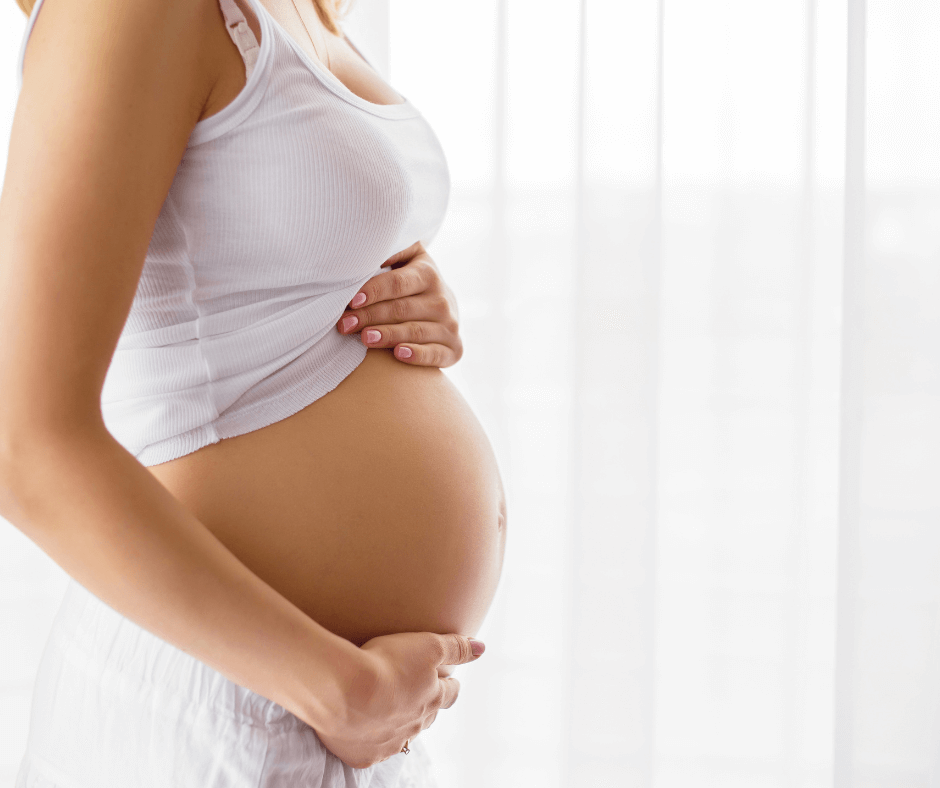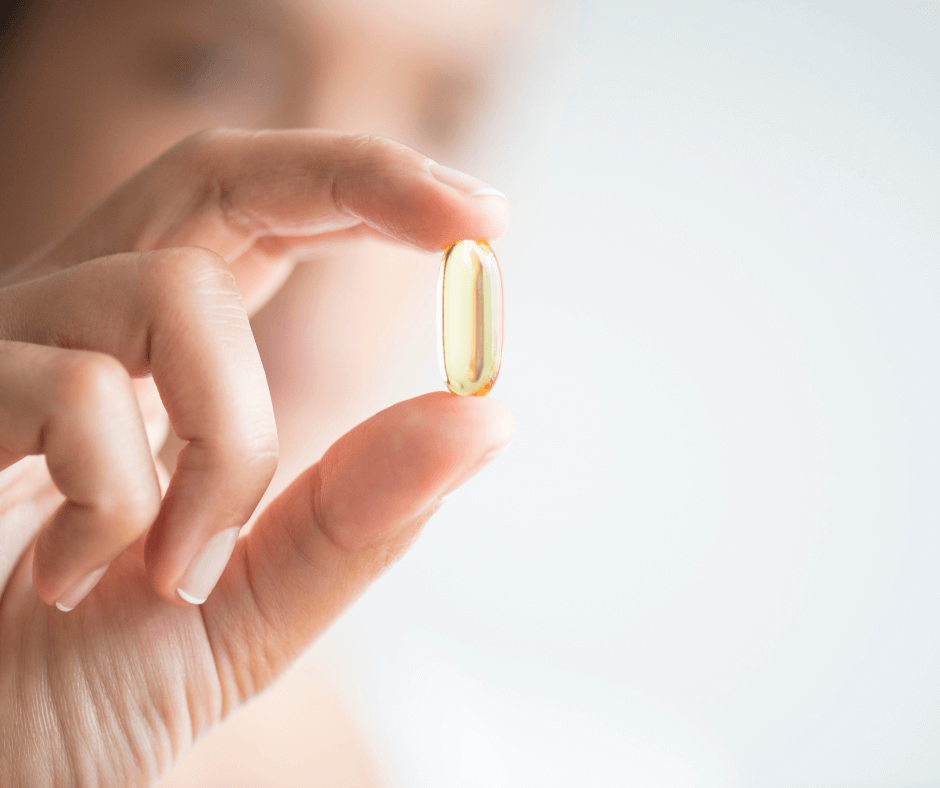Pregnancy Vitamins & Supplements: Everything you need to know

Pregnancy is a time of immense change for a woman's body, and proper nutrition is essential for the health of both mother and baby. While a healthy diet is the foundation of good prenatal care, sometimes it's not possible to get all the necessary nutrients through food alone. That's where prenatal vitamins and supplements come in. In this blog, we'll discuss the importance of pregnancy vitamins and supplements, what to look for when choosing them, and how they can help support a healthy pregnancy.
Why are prenatal vitamins important?
During pregnancy the demands on the body are higher to support the growing foetus. Prenatal supplements can provide that extra support during pregnancy to help achieve the recommended dietary levels. Deficiency in certain vitamins, like folic acid, can also be a risk factor in foetal malformations like neural tube defects.
Prenatal vitamins are important because normal multivitamins shouldn’t be taken. Normal multivitamins for adults usually contain vitamin A (retinol), which can be harmful to the growing foetus. A safe prenatal formula should contain betacarotene (natural source) which is converted by the body into vitamin A on an as needed basis. This reduces risk of toxicity and is safe during pregnancy. It is also recommended that if you are trying for a baby to avoid vitamin A in multivitamin supplements.
The best vitamins for pregnancy also contain a source of the omega 3 fatty acids docosahexaenoic acid (DHA) and eicosapentaenoic acid (EPA). DHA is especially important for the normal brain and eye development of the foetus.
Which vitamins are most important for pregnancy?
The most important vitamins for pregnancy are:
- Folic acid – in pregnancy folic acid reduces the risk of neural tube defects
- Vitamin D3 - during pregnancy it is recommended that 10mcg of vitamin D3 is taken daily especially during September and march in the UK where sunlight hours are at their lowest. Most vitamin D3 is sourced from sheep’s wool. During a vegan pregnancy, ensure that your vitamin D3 source is from a plant-based source like lichen. Other sources include eggs, red meat and fish. Vitamin D helps regulate calcium and phosphate in the body, which are needed for healthy bones, teeth and hair.
- Iron – low iron will lead to tiredness and exhaustion. It is important to monitor this during pregnancy. Iron can be obtained from food like fresh leafy vegetables.
- Vitamin C – vitamin C helps support the immune system during pregnancy and can be obtained from fresh fruit and vegetables.
- Calcium – calcium is really important for your babies growing bones and teeth. Some foods high in calcium include milk, yogurt and soya milk with added calcium.
The above vitamins are just 5 of the most essential and well research vitamins in pregnancy. It is also important to achieve all the other recommended daily vitamin and mineral nutrients as part of a balanced and healthy diet. Omega 3 although not a vitamin is an essential amino acid that is required during pregnancy in increased levels, but we will talk more about this further down in this article.
During a vegan pregnancy it is also important to consider vitamin B12 and an algal oil form of DHA and EPA. This is because it is extra difficult to obtain these in a vegan diet during pregnancy. Algae oil provides the same omega-3 benefits as fish oil and is a great vegan alternative.
Folic Acid for pregnancy: Before and during
Supplementing with folic acid is recommended, as supplemental folic acid intake increases maternal folate status. Low maternal folate status is a risk factor in the development of neural tube defects in the developing foetus. The NHS advise that taking folic acid in pregnancy can help prevent birth defects know as neural tube defects, including spina bifida (1).
Folic acid in pregnancy is essential before and during. It is recommended by the department of health that supplemental folic acid is taken every day before conception and then until 12 weeks into pregnancy. This being said, it is still safe to continue with folic acid supplementation throughout all trimesters of pregnancy. Supplementation is recommended because folic acid is difficult to get in the diet through food and therefore there is a higher risk of deficiency.
The department of health recommended at least 400mcg of supplemental folic acid daily before and 12 weeks into pregnancy. A higher dose of 5mg folic acid daily may be required if there is an increased risk of neural tube defects in your family. This should be discussed with your doctor as is prescription only.
Folic acid supplements vary in quality. Normal folic acid isn’t absorbed very well by the body. The best prenatal vitamins contain the methylated version of folic acid which is l-methylfolate. Methylated forms are better absorbed. Quatrefolic® is one of the best forms of folic acid. Its scientific name is methyltetrahydrofolate and studies show its superior absorption compared to normal folic acid.
Omega-3 for pregnancy
Omega 3 is an essential fatty acid that cannot be made by the body and so needs to be obtained from the diet. Omega 3 requirements go up in pregnancy and there are many omega-3 rich foods to chose from.
The normal recommended daily intake as per EFSA guidelines for an adult is 250mg of DHA. During pregnancy this goes up to 200mg plus the recommended adult daily intake of 250mg daily.
This can be achieved through the diet, through supplementation, or a combination of both. This maternal daily dose of DHA contributes to the normal brain and eye development of the foetus (2). There are 3 main types of omega 3 fatty acid alpha-linolenic acid (ALA), eicosapentaenoic acid (EPA) and docosahexaenoic acid (DHA). Out of these three DHA is considered the most vital during pregnancy as it plays a more direct role in brain and eye development of the foetus.
Vitamin D in pregnancy
Vitamin D during pregnancy is especially important in the winter months, when sunlight levels are lower. It is recommended that a daily supplemental dose of 10mcg of vitamin D in pregnancy is taken from September through to March. It is also safe to supplement all here round with a daily dose of 10mcg of vitamin D. Ensure to choose vitamin D3 which is a higher quality better absorbed version of vitamin D. Vitamin D is vital for normal growth of bones and teeth.
Other important vitamins and nutrients in pregnancy
A balanced diet of all the recommended vitamins and nutrients is advised during pregnancy. In a vegan or vegetarian diet, it might be especially difficult to obtain some specific vitamins through diet alone including iron, vitamin B12 and omega 3 DHA. It is recommended to speak to a healthcare advisor or doctor regarding this and additional supplementation may be required.
Vitamin Supplements during pregnancy
Vitamin supplements are recommended in pregnancy. It is important to choose pregnancy specific supplements that are specifically designed for pregnancy and taken under the guidance of a healthcare professional. Pregnancy vitamins are important because they help support the extra dietary demands the growing baby puts on the body.
References:
- https://www.nhs.uk/pregnancy/keeping-well/vitamins-supplements-and-nutrition/
- https://www.efsa.europa.eu/en/efsajournal/pub/2078




Comments
Lascia un commento
Your Email Address Will Not Be Published. Required Fields Are Marked *